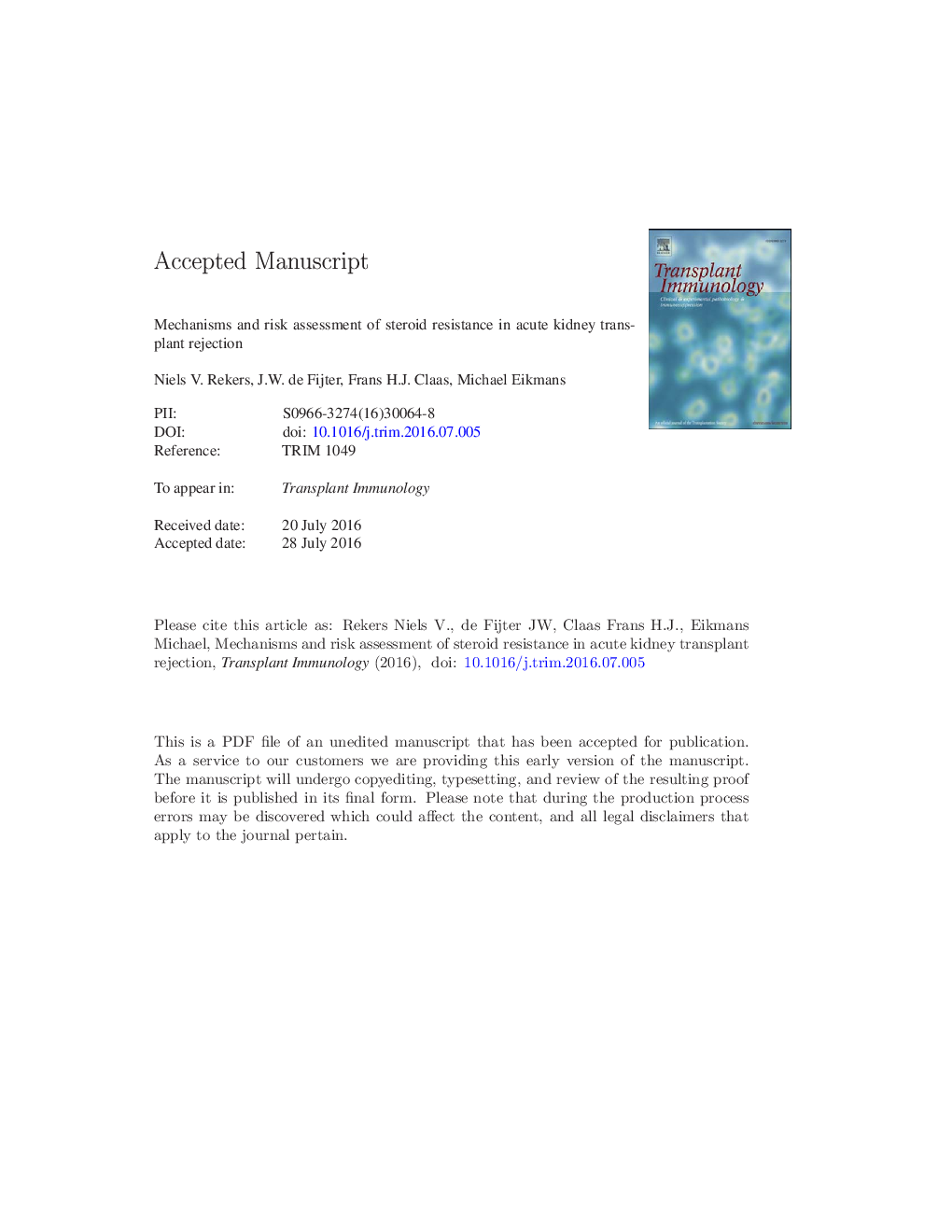| Article ID | Journal | Published Year | Pages | File Type |
|---|---|---|---|---|
| 6125948 | Transplant Immunology | 2016 | 47 Pages |
Abstract
Ever since the first successful kidney transplantation, the occurrence of acute rejection has been a dominant risk factor for adverse graft outcome, as it is associated with reduced graft survival and the development of chronic transplant dysfunction. Although the majority of acute renal allograft rejection episodes can be adequately treated with glucocorticoid therapy, 25 to 30% of the rejection episode cannot be reversed with glucocorticoids alone. At present, the diagnosis of steroid resistance primarily relies on post-transplantation follow-up of clinical parameters reflecting renal allograft function. However, it remains difficult to predict the response to the response to antirejection treatment. Prediction of steroid resistance could prevent unnecessary exposure to high-dose corticosteroid therapy and avoid the development and progression of irreversible nephron. This impact of steroid-refractory rejection on graft integrity stresses the need for tools to assess the response to AR treatment in an early stage. Here, we discuss our current understanding of resistance to anti-rejection treatment with glucocorticoids, and provide an overview of biomarkers for the detection and/or prediction of steroid resistance in kidney transplantation.
Keywords
TIMP1HspIκBPTCAP-1ATGGCsNTDIL-2Ranti-thymocyte globulinMKP-1CBPSRC-1LAG-3Grβperitubular capillariesMAP kinase phosphatase 1nGREglucocorticoid receptor βGRαGlucocorticoid receptor αOKT3GREDBDPBMCMMPTCrFKBPHDACNF-κBCREBIBD3′-untranslated regionHuman leukocyte antigenHLAIFTAtissue inhibitor of metalloproteinase-1Inflammatory bowel diseaseN-terminal domainDNA-Binding DomainSteroid treatmentAcute rejectionperipheral blood mononuclear cellsNK cellsNatural killer cellsRejectionglucocorticoid responsive elementnuclear factor-κBInterstitial fibrosis and tubular atrophyMetallothioneinsMatrix metalloproteinasesUTR یا untranslated regions inhibitor of κBCANMolecular markerschronic allograft nephropathymaphistone deacetylaseTherapy responseCREB-binding proteinFK506-binding proteinHeat shock proteinmitogen-activated proteinactivator protein-1Single nucleotide polymorphismTransplantationSNPLymphocyte activation gene-3GlucocorticoidsGlucocorticoidIL-2 receptorT cell receptorglucocorticoid receptor
Related Topics
Life Sciences
Immunology and Microbiology
Immunology
Authors
Niels V. Rekers, J.W. de Fijter, Frans H.J. Claas, Michael Eikmans,
